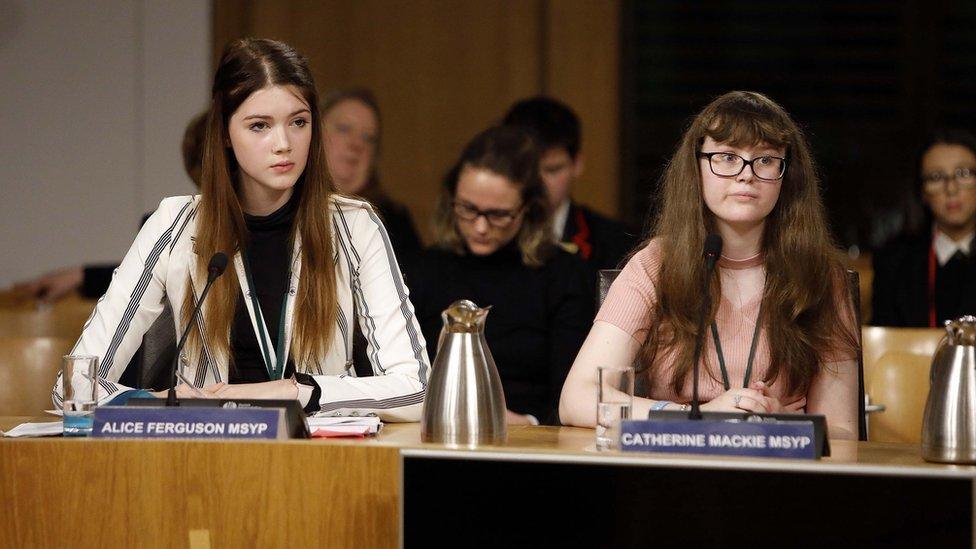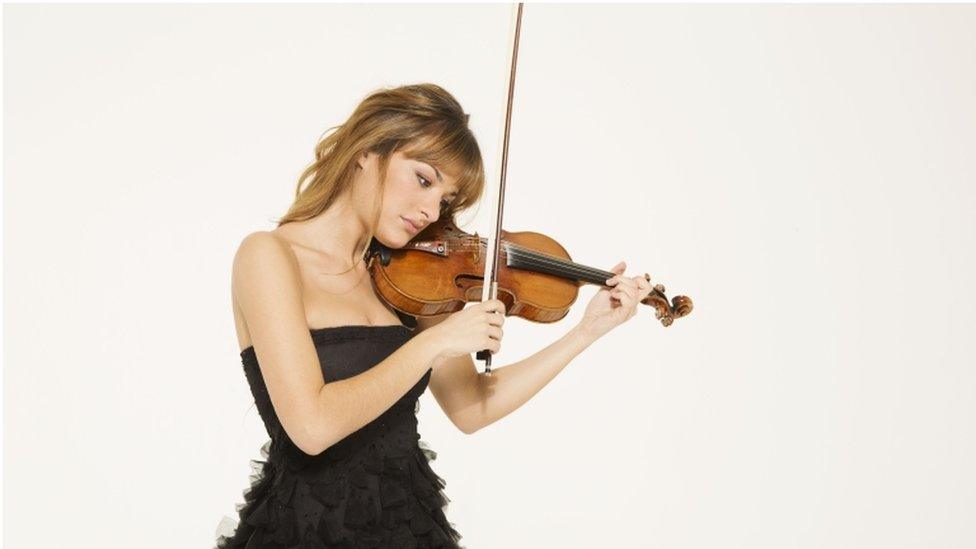Poor pupils 'priced out of music lessons'
- Published
Young musicians make impassioned plea over music tuition
Charging pupils for music tuition means only the "elite" can afford to learn to play an instrument while poorer children miss out, MSPs have heard.
School music tuition remains free in some council areas, while others charge more than £500 a year.
School pupil Alice Ferguson told a Holyrood committee that her school band had lost members because they could no longer afford music lessons.
And she said charging for music tuition was "increasing inequality".
Alice and fellow Scottish Youth Parliament member Catherine Mackie were giving evidence to Holyrood's education committee as part of its inquiry into music tuition in schools.
It was reported earlier this year that only 10 of Scotland's 32 councils still provide free music tuition - with Clackmannanshire voting to double the cost of lessons to £524 a year for most pupils.
The EIS teaching union has also expressed concern about a dramatic fall in the number of music teachers - from 1,100 to 640 over the past decade.

Alice Ferguson and Catherine Mackie were giving evidence to Holyrood's education committee
Alice set up a campaign last year to oppose charges being introduced in her council area of West Lothian, where pupils are now charged £328 a year.
She told MSPs the cost covers a weekly 25-minute lesson, which can be with up to 10 pupils, and membership of school bands and other ensembles - which she said works out as £10 per 25-minute lesson.
She said the price is "absurd" as cheaper private lessons are available.
Pupils who qualify for free school meals are exempt from charges but Alice said this does not help those just above the threshold who are now missing out on music tuition due to cost.
"I know a lot of my friends have now dropped out of music just because they can't afford it, which is ridiculous," she told the committee.
"By introducing a charge for instrumental service, you are denying young people this opportunity depending on how much money they have, which just shouldn't be the case.
"It is only the privileged that are getting to do music now - it's like Victorian times, where only the elite get these opportunities. This increases inequality".
She said being given free music tuition in the past from primary school onward had helped her make new friends, gain confidence and build skills.

The committee heard concerns that Scotland could miss out on the next Nicola Benedetti if pupils cannot afford music lessons
The committee also heard from Catherine Mackie, a member of the Scottish Youth Parliament for Glasgow Southside, who echoed Alice's view.
She said: "The benefits are there - mental health improves, you end up with more friends if you join a band or an orchestra, even grades can improve. It seems like quite a clear solution to keep music free for everyone."
Catherine said that without being given the opportunity to learn violin from primary school she would not have been able to sit senior secondary school exams in music.
'Potential talent'
"Without learning to play an instrument, who knows what potential talent we might be missing out on? We could have the next Bach, the next Nicola Benedetti, the next anyone in our schools," she added.
"It's completely imperative that you've got to have music free for everyone because cost shouldn't be a barrier. You can't put a price on music."
The Scottish government's Youth Music Initiative, external aims to ensure every school pupil in Scotland is offered a year of free music tuition by the time they leave primary school.
Culture Secretary Fiona Hyslop has previously said she believes music tuition in schools should be free for all pupils - but has stressed that it is for individual councils to decide how to spend their budgets.
However, Scottish Greens MSP Ross Greer claimed that a "decade of council budget cuts" under the current Scottish government has forced "many young people to drop music tuition or not take it up in the first place."